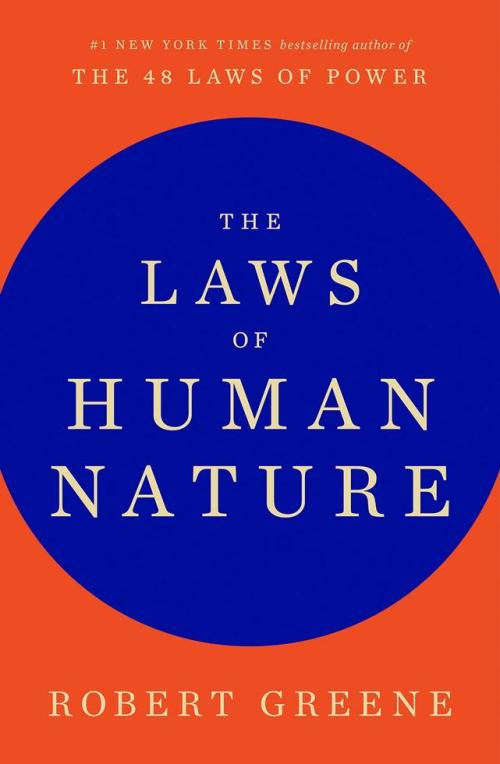


Hello! Um… thought I’d write some book review for a blog post, rather than simply putting the book aside after reading it. So, here goes:
Table of Contents
Summary
The Laws of Human Nature by Robert Greene is a self-improvement book with 18 chapters- each chapter detailing the an aspect of our social tendency. From narcissism and aggression, to sentimentality and compulsivity, Greene illustrates each with an interesting case study of historical figures. Then, the book provides insights on why we have these social tendencies to begin with, how they can be destructive to our lives if left unhindered, and finally, how we can use them to advance.
I bought this from the Hong Kong annual book fair, and took about a few weeks (with a long gap in the middle) to finish.
An Opportunity to Reflect…
There are certainly aspects of our tendencies (or personalities?) that we refuse to acknowledge, especially those that are particularly dark and weak. This book brings many aspects of our nature to light.
For example, the aggression chapter talks of the entrepreneur John D. Rockefeller and his oil company, of how he appears well-spoken and gentle to the public, but his business decisions and behaviour implied a more ruthless side.
I have to point out that the case studies are edited in order to fit the author’s (Greene) points better. And the narrative is written in a story-style for easy digest.
Still, they are based on history, and the points are delivered through the stories in the end; that our tendencies to be jealous, aggressive, or greedy are much more prominent than we’d like to think.
After all, we can only listen to our own minds. We have no idea what other people are actually feeling inside. A person can be perfectly polite and agreeable. But is that their outward behaviour, their predisposition, or both?
Nature is not Dark or Good
Our nature, or tendencies (I kept thinking which of these 2 words to use…) are developed through generations of natural selection. If there are genes that influence a useful “nature” to survive, it is more likely to be carried forward.
I’m glad Greene pointed out that these “nature” are not there to make human-beings look evil, nor are we born a blank sheet of goodness and altruism.
Human, just like any other creatures, evolved to survive better. It’s just that human society has changed too drastically. Our jobs, technology, and lifestyles are completely different a few centuries ago- a tiny sliver of time, compared to the millions of years required for homo sapiens to evolve.
In this sense, “nature” is just a means. A tool. An instrument, however obsolete, to live.
Since this tool is a bit outdated and too rigid to mold, Greene has suggested some ways to use it creatively, to bend them to our advantage. For example, our ego can be used as confidence; aggression can be projected into the passion of our career instead of interpersonal relationships.
Archetypes of Human Nature
Though, I’m skeptical at the archetypes he raised in each chapter.
After the case studies of each law of human nature, Greene would introduce some archetypes. For example, are you a passive-aggressive narcissist? A grandiose narcissist? Or a narcissist who yearns to control every aspect of your/ everyone’s life?
While these types sounds kinda sensible… how did Greene come up with such categorisations of everyone? And how does he know how many variations there are?
In his defense, perhaps it’s just his own insight, since all cases in the book are looking at historical figures retrospectively. And there are no empirical research (I saw the long list of bibliography at the end of the book, but scientific research is almost never raised in the main content). If we really have to categorise people, I’m fairly sure that Greene has omitted many other different “archetypes” of human nature.
Still, it’s good to understand even one aspect of human nature can have different faces. Instead of just holding a stereotypical impression of a “toxic” person, it’s useful to acknowledge that hostility comes in different forms.
You Should Know vs. You Should Do
In each chapter, the book advised that we recognise the signs of human nature. First in ourselves, then in other people.
The book raised many instances- when human nature became so destructive to the person and those around them. It makes sense, then, to acknowledge the existence of malice. Right?
However, the advises on how to deal with different types of people can be quite misleading. For example, on the notion that “we should not engage with a narcissistic person directly. Calmly observe their weakness and wait for the right moment to strike”. Sounds like something out of Sun Tzu.
In the perspective of psychological research, though, things are not so black and white. Are we sure that we’re not running away due to our own anxiety? Are we not misjudging another person as “narcissistic”? What is “weakness”? Are we not just exploiting someone else? Who’s to say it won’t bite us back?
Real life is too fast in change, too situational, and too many factors (biological, cultural, cognitive, situational) are at play. Some crucial details are left too vague. Either it overestimated our ability to dissect people, or it underestimated our psyche’s complexity.
Though, in the book’s defense, if the content is supposed to be a meta-analysis of prior scientific research, we wouldn’t be reading a self-improvement book now, but an academic journal, would we?
Conclusion
In short, since the book lack empirical research, I found myself suspect whether it comes from the author’s armchair psychology. I wouldn’t use it as some kind of Bible for actually studying human nature.
But I think the book is quite useful when you want to have some self-introspection. Each chapter provides something for us to think whether we have fallen prey into this human tendency- as in, have we succumbed to this human weakness, have we risen above it, have we repressed it, or have we been using it to our advantage?
Just in case though- if you tend to experience anxiety or paranoia, understand that you might already be hyper-alert. It’s best to take the content with a grain of salt. Not everyone in this world is out to get you. After all, the author also wrote books like The 48 Laws of Power and The Art of Seduction. Something so Machiavellian is probably going to give you a politicians’ brand of cognitive bias.





What are the primary differences between “nature” and “tendencies” in the context of human evolution and natural selection?